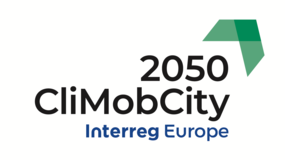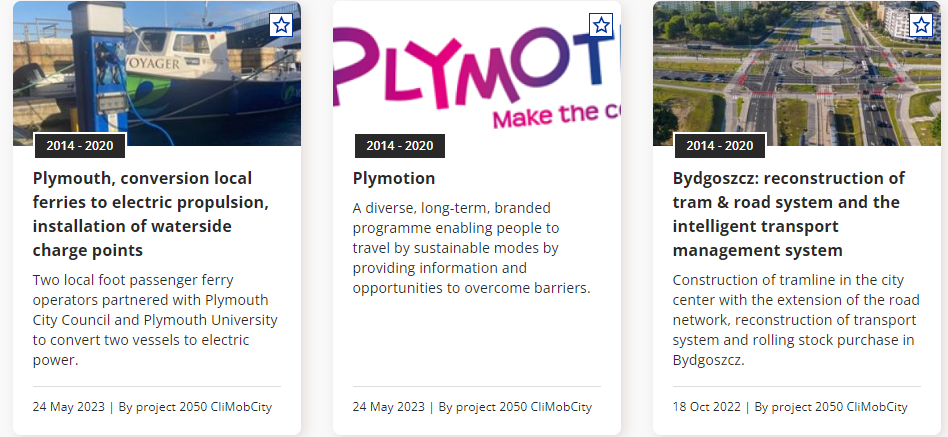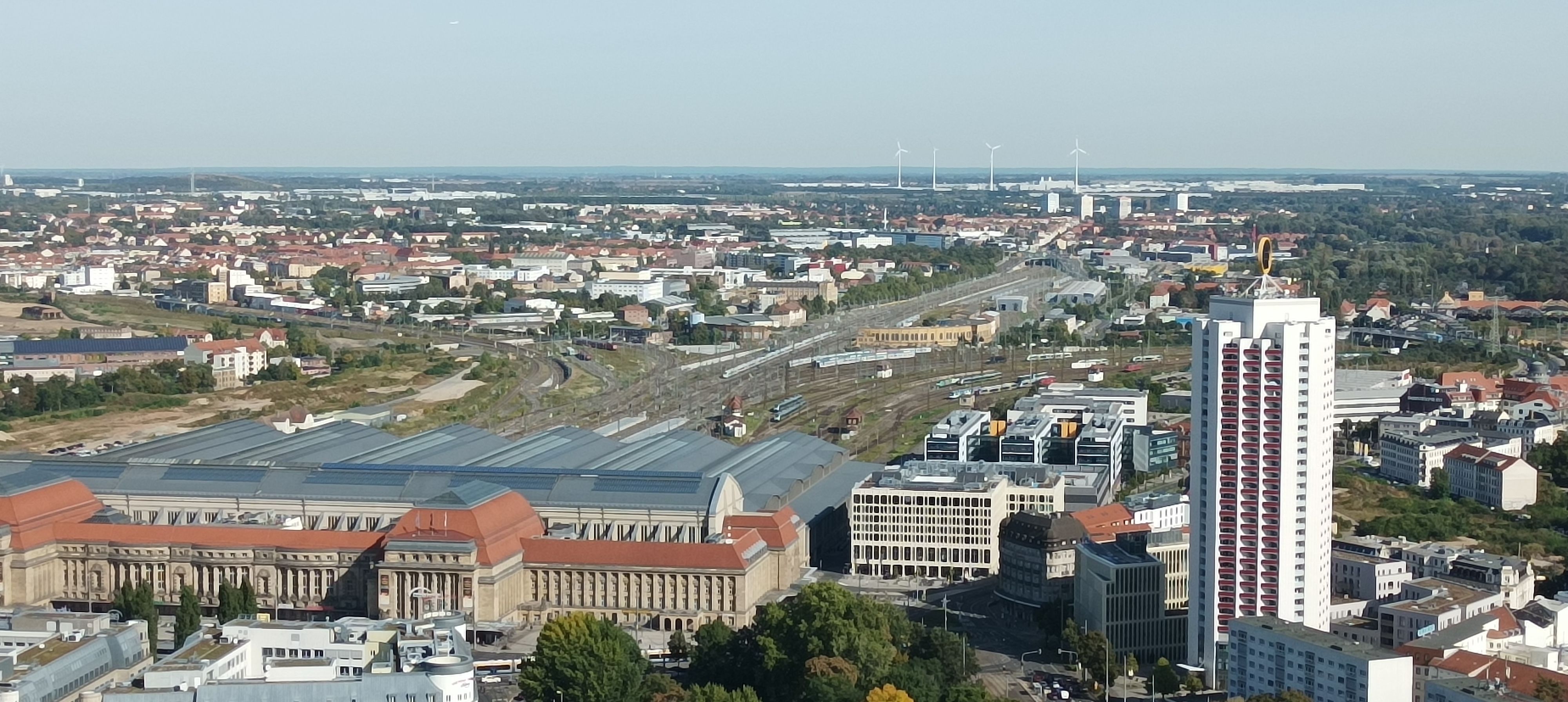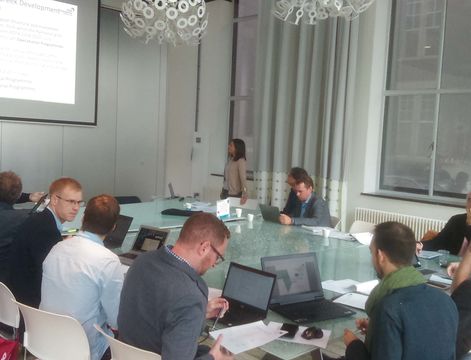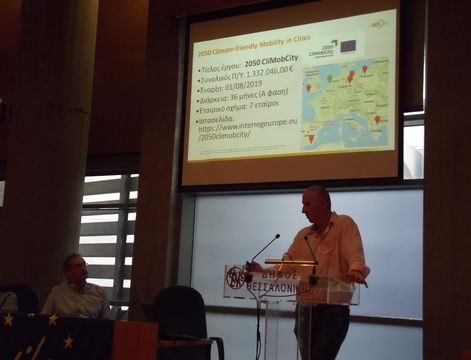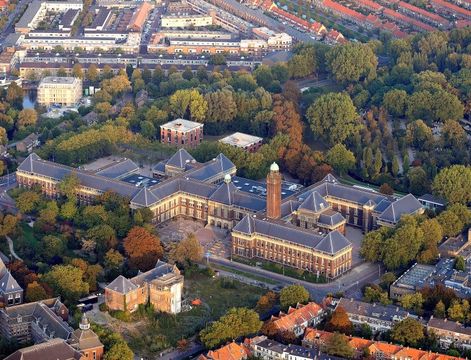We are happy to announce a new project report, the Project Summary, being the last of a series of project reports which document a large part of the work and learning in the project.
More precisely, the centre of Interreg Europe projects is interregional learning. The learning actors in 2050 CliMobCity are the four municipalities, Bydgoszcz, Plymouth, Thessaloniki and Leipzig. The subject of interregional learning is how to make mobility in cities sufficiently climate-friendly. The interregional learning in the project has taken place by means of demonstrations: each partner city demonstrated the carbon reduction effects of explorative policies in their own city. The demonstration steps were: each city clarifies the content of current strategic measure packages and defines one or more explorative measure packages which expectantly will lead to a substantial reduction of CO2e emissions from mobility in a space-efficient way. The cities then predict the change of mobility. PIK analyses the reduction of CO2e emissions that results from the change of mobility as well as from the expected shift from fossil fuel vehicles (like gasoline or diesel vehicles) to post-fossil fuel ones (like electric or hydrogen) vehicles and from the changing energy mix of electricity production. The cities discuss the findings with their administrations, politicians and stakeholders and give feedback to the project.
TU Delft, being the lead partner, has structured and coordinated this process. And it has conducted a supplementary brief literature study regarding novel types of mobility as micromobility and shared mobility, and of mobility hubs. These mobility innovations are not part of the cities’ transport models. Therefore the question arose which additional CO2e reduction might be expected from these mobility innovations. This brief review is part of the last chapter of the Summary report, which also contains recommendations from the demonstrations and review to the city partners.
Each partner city learns from its own demonstration and from the demonstrations of the other partner cities. The demonstrations in this way give orientation to decision-makers of the municipalities and stakeholders in the city’s region for developing appropriate policies for developing effective policies in the field of mobility and supporting spatial development.
The process and findings of the four demonstrations are documented in a set of reports which have been launched since 2022. These are four city reports, one per partner city and written by the cities, the report on the analysis of CO2e emissions of PIK, and the Project Summary. The latter gives a streamlined overview of the work and results of the contributions of all project partners. The city reports and the PIK report are appendices to the Summary Report. We refer to them as the Appendix-Bydgoszcz-Report, Appendix-Plymouth-Report, Appendix-Thessaloniki-Report, Appendix-Leipzig-Report and the Appendix-PIK-Report.
These reports can be found in the Library of this website (-> Project reports).
